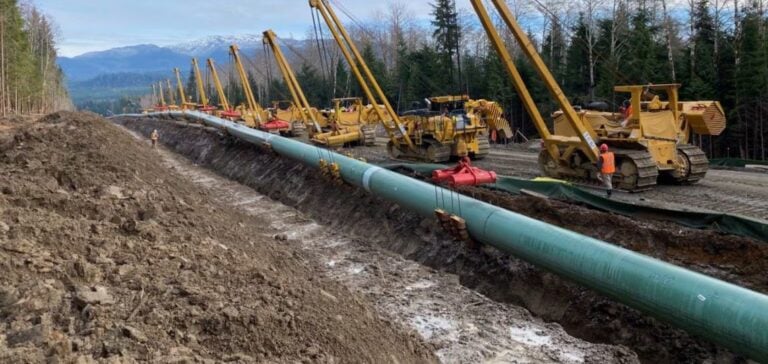Argentina recently inaugurated the Northern Natural Gas Pipeline, a project connecting the shale gas-rich Neuquén province to the northern regions of the country. This infrastructure not only aims to meet domestic gas demand but also to strengthen Argentina’s energy independence by reducing its reliance on imports, primarily from Bolivia. The project is part of a broader energy transition strategy and regional resource reorganization.
Objectives and Economic Implications of the Northern Natural Gas Pipeline
The commissioning of this pipeline addresses several strategic goals. First, it enables efficient transportation of gas from Vaca Muerta, one of the largest shale gas deposits globally, to the northern areas of Argentina, where demand is growing. By strengthening national distribution capacity, Argentina hopes to reduce its need for gas imports, thereby enhancing its energy sovereignty.
The total construction cost of the Northern Natural Gas Pipeline is estimated at $710 million, largely financed by international institutions such as the World Bank and the Development Bank of Latin America and the Caribbean (CAF). These organizations support the project for its potential economic and social benefits, including regional growth stimulation and reduced CO₂ emissions associated with long-distance gas imports.
Towards Greater Energy Independence
This pipeline is pivotal in Argentina’s energy autonomy strategy, an increasingly important goal amid volatile energy prices and geopolitical tensions. By reducing imports of Bolivian gas, the country is shielding itself from global price fluctuations and potential supply disruptions. Secure gas supply is crucial for Argentine industries, which will benefit from stabilized prices, improving their competitiveness both domestically and for exports.
Export Opportunities to Neighboring Countries
Beyond meeting domestic demand, the pipeline could open up new export prospects for Argentina. Once domestic needs are met, the country could consider exporting its surplus gas to neighboring countries such as Chile and Brazil. These markets, where gas demand is high, offer an opportunity for Argentina to diversify its outlets. Chile, for example, heavily relies on imports to meet its energy needs, particularly in southern regions, while Brazil, with its massive demand, represents a promising potential market.
Expected Effects on the National Economy and Public Finances
Savings from reduced imports, combined with revenue from gas exports, should significantly support Argentina’s public finances. In a tight budgetary situation, revenue generated by the pipeline could be used to fund social programs, strengthen infrastructure, and stabilize public debt. In the long term, these positive economic effects could also help stabilize the Argentine peso by increasing the country’s foreign exchange reserves.
Additionally, the development of the local gas industry boosts investments in related infrastructure, creating jobs in the energy and construction sectors. This process also contributes to economic development in historically less favored regions.
Environmental and Economic Challenges
Despite the encouraging prospects, several challenges remain. Shale gas exploitation, such as that of Vaca Muerta, is often criticized for its environmental impacts, particularly methane emissions and intensive water usage in hydraulic fracturing. To minimize these risks, Argentina will need to strengthen its environmental regulations and consider more environmentally friendly technologies.
Furthermore, global gas price volatility represents an economic risk. A significant drop in prices could reduce export profitability and affect the project’s financial outlook. In addition, managing and maintaining the pipeline over the long term will require technical and financial resources to ensure its proper functioning.
The Northern Natural Gas Pipeline represents a strategic advance for Argentina. This project, which aims to strengthen energy autonomy and open up export prospects, brings hope for the country’s economy and public finances. However, it also poses environmental and financial challenges that Argentina will need to address to ensure the sustainability of its energy ambitions.






















